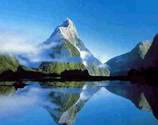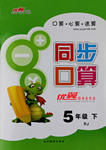题目内容

Are you 1 for a place in the southwest of China? If your answer is “yes”, why not pay a trip to Shangri-la, which is 2 mysteries and beauty.
The world “Shangri-la” first appeared in the 1993 novel Lost Horizon 3 the British writer James Hilton. He described a beautiful kingdom where three rivers 4 together and snow-capped mountains reached to the sky, with fields of long grass covering the earth. In this perfect world lived people who had discovered how to stay 5 forever.
Three mountains are covered with snow and tower 6 the land. These snowy mountain tops form 7 beautiful picture that we can’t wait to fly there.
Lakes, 8 by vast grasslands, look like diamonds. Sheep, cows, horses and animals feed 9 on the green grass and the forests around are 10 to lots of birds and animals. In this heavenly world, people live in perfect harmony with nature.
| 小题1: |
|
| 小题2: |
|
| 小题3: |
|
| 小题4: |
|
| 小题5: |
|
| 小题6: |
|
| 小题7: |
|
| 小题8: |
|
| 小题9: |
|
| 小题10: |
|
小题1:B
小题2:A
小题3:B
小题4:C
小题5:C
小题6:A
小题7:B
小题8:B
小题9:C
小题10:D
试题分析:本文的主要内容是:介绍了中国西南部的香格里拉风景秀丽,景色宜人,是鸟类和动物们的美好家园。
小题1: 根据If your answer is “yes”, why not pay a trip to Shangri-la可知这里想说你渴望去中国的西南部的一个地方旅游吗?be thirsty for 渴望,故选B。
小题2:这里想表达香格里拉充满了神秘与美丽,full of充满 lack of缺乏 short of缺少 fill with这里应该是 filled with ,故选A。
【小题3由“ ……写得”用by,故选B。
小题4:这里想说三条河连接在了一起,put放 got得到 joined连接 formed形成,故选C。
小题5: 根据In this heavenly world, people live in perfect harmony with nature.
可知在这个完美的地方居住着发现了永远保持年轻的人们,calm镇定的 still静止的 young年轻的 the same一样的,故选C
小题6:这里想表达在土地上,over(部分或全部覆盖)在……上面 above在…… 正上方 on在……上 beyond超过,故选A。
小题7:名词前用such,并且表示如此美丽的一幅画,需要用不定冠词,故选B。
小题8:湖被广阔的草地包围,covered覆盖 surrounded包围 separated分开 divided分离,故选B。
小题9:这里想表达羊、牛、马和动物们主要以周围的绿草和森林为食,simply简单地 deeply深深地 mostly主要地 finally最后,故选C。
小题10:根据to lots of birds and animals.可知香格里拉是鸟和动物们的家,故选D。
点评:答题前一定要略读全文,把握文章要表达的主题,注意前后句与句,段落与段落之间的关系。答题中,一定要认真分析,注意选项与上下文的关系,与前后单词的关系。对于一时没有太大的把握的题可以放到最后再来完成,因为有时答案可以从下文内容体现出来。答完后再通读一遍文章,看看所选选项能不能是语句通顺,语意连贯。

练习册系列答案
 优翼小帮手同步口算系列答案
优翼小帮手同步口算系列答案
相关题目